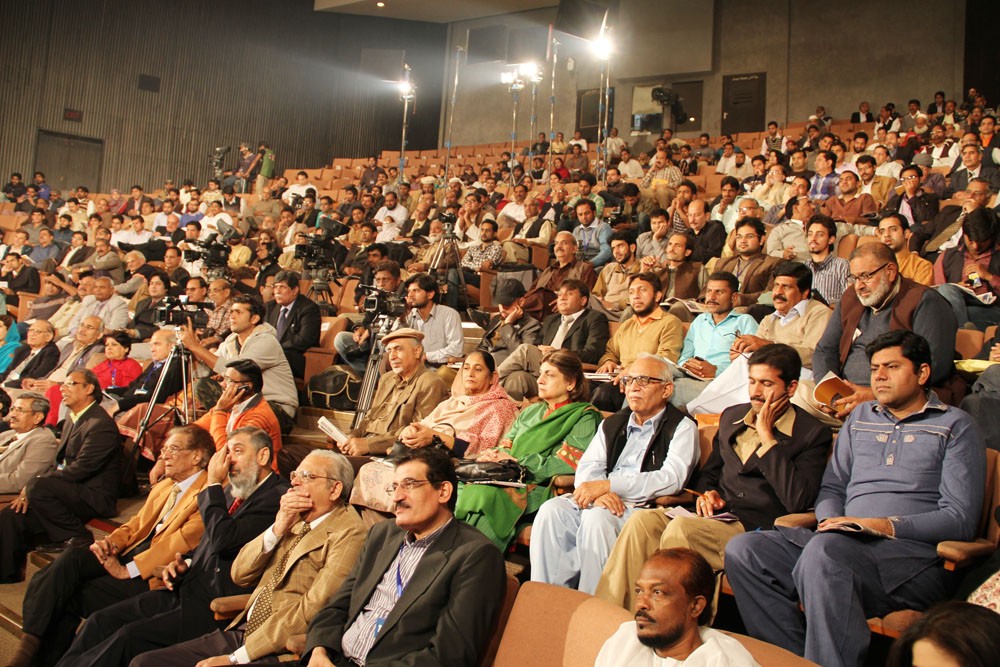
Dismal academic work is the outcome of perennial disconnect between academia and the general public

When I came back to Pakistan in September 2011, I was shocked by the state of the social sciences in Pakistan. While the establishment of the Higher Education Commission in 2002 did bring in a lot of funding to the universities and the establishment of new varsities did give a fillip to academic activity, yet the quality of academic work did not improve substantially and remained dismal.
What was even more shocking was the disconnect between academia and the general public. It was as if academia only existed within the walls of the universities with little interaction with the outside world. Where in the world the academy led the charge on new ideas and thinking, in Pakistan, professors were happy to sit in their air-conditioned offices sipping tea and joking around with their students. This had resulted in a steady decline in the number of world-class scholars, at least in the social sciences in Pakistan, so much so that when someone asked me in 2011 to name five top non-economics related social scientists in Pakistan I got stuck at number three.
Over the last four years, I have often contemplated the root cause of such a diminution of the role and impact of academia in Pakistan. While there are a myriad of reasons, of course, one central reason is the lack of freethinking. Obviously, freedom of thought is the only freedom not guaranteed in the Constitution of Pakistan 1973 and therefore there has always been a constitutional, in addition to a practical, bar on freethinking.
Free thinking is the fuel which leads to development, both intellectual and actual, as without freethinking no inventions, no discoveries, and almost nothing new and better can take place.
The recent events in India over freedom of thought and expression should be a case in point for us. If academia relegates itself to the limits of its ivory towers then the public space is taken over by extremists (on both sides) which leads to discourse becoming a diatribe, depth of research becoming a shrill loud voice, and argument transforming itself into a stick. India has been lucky that it has institutions like the Jawaharlal Nehru University which are bastions of free speech and thought, and which are now fighting the important battle to preserve these freedoms.
The sheer fact that the administration block at JNU has become ‘Freedom Square’ with several academics giving talks there every day, shows their resilience and the critical need for academia to engage with the public on these important issues -- we must stand with JNU, today and forever, to preserve these freedoms.
When I joined IT University of the Punjab, one thing which attracted me was the motto of the university, which was taken from Poet Laureate Sir Muhammad Iqbal’s poem Takhliq (Creation), where the full verse reads, in translation: ‘New worlds derive their pomp from thoughts quite fresh and new/From stones and bricks a world was neither built nor grew.’ This verse was specifically chosen by the inaugural Vice Chancellor of ITU, Dr Umar Saif, because he recognised the importance of ‘new thoughts’ for the development of ‘new worlds.’ Hence, Dr Saif created an environment in which not only sciences flourish, but also the humanities and the social sciences since without the collaborative efforts of all these disciplines Pakistan will never prosper.
Several people have tried different methods for the revival of intellectual activity in Pakistan and the several literary festivals in Pakistan and their spectacular success shows that there is a great hunger for such activities. However, despite these attempts most general conferences remain trite, boring and redundant in Pakistan. The format of these conferences is where often several speakers just going on and on for nearly half an hour and with little discussion afterwards. People also seldom ask questions at these events as students are often scared of offending their professors by disagreeing with them, and other are generally too bored by the end of it to care to ask anything meaningful.